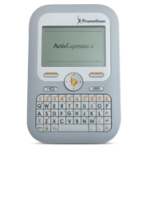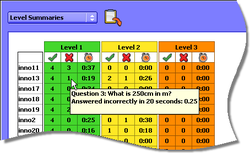All this begs the question: why do the leadership of the School District, the Union, charter management organizations, and more not listen to what we want? I understand that cash is tight across the city - this is why I do not begrudge those who created narrated webinars to train staff across the city. There is simply not enough money to provide differentiated instruction for all of us.
So, what's my solution? Let us communicate with each other and share what we want and what we have to offer. I wish a central organization would create a simple, easily-searched database of people and their instructional resources. Imagine if teachers at School A needed to learn about the Understanding By Design model and teachers at School B were able to fulfill that need. Just type in a few search strings and - poof - your screen fills with the contact information and bio of the potential trainer. By no means do I have the necessary knowledge to create this database - but I'm sure someone does. Please step up to the plate and announce yourself so we can get behind you!
If someone downtown would listen to us, maybe we would improve our practice with less money and less worry. Maybe we could call this movement PD4Us - a group of teachers coordinating the offerings of supports across the city for all of us to learn from each other. Wouldn't that be something?




 RSS Feed
RSS Feed
